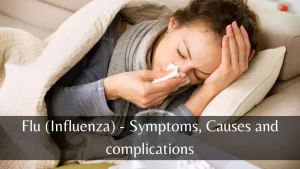
Frequent indigestion is not uncommon and typically not a cause for concern. In the event that you experience stomach discomfort following a substantial meal, you can generally find relief by using an antacid. However, if you frequently suffer from indigestion, then this article for you where you will know how to cure indigestion fast, it could indicate an underlying issue that requires attention. This could include treatable conditions such as acid reflux or peptic ulcer disease, or it might involve more intricate factors.
What is indigestion?
Indigestion, also known as dyspepsia, refers to the discomfort or pain experienced during the process of digestion after eating. When your stomach is not digesting properly, you may experience a stomachache or an upset tummy. It’s important to note that indigestion can arise from various causes, including dietary choices or eating too quickly.
Occasional indigestion is a common occurrence that many individuals have encountered. However, for some people, it becomes a daily issue that significantly affects their quality of life. In such cases, seeking healthcare becomes necessary to find answers and obtain relief. While there are instances where an underlying gastrointestinal (GI) disease requires treatment, there are also situations where these symptoms don’t have a straightforward explanation.
Causes
Occasional indigestion can have straightforward causes. For instance, after consuming a particularly large or heavy meal, many individuals experience indigestion. This can be easily explained by the increased workload on the digestive system. Stomach stretches, gallbladder/pancreas contract, strong digestive juices irritate tissues.
However, when indigestion persists beyond a single meal or becomes a chronic issue with intermittent episodes, the causes tend to be more complex. Multiple factors may be involved, including organic causes such as diseases, or in some cases, there may be no apparent cause, referred to as functional dyspepsia. Functional gastrointestinal (GI) disorders occur when the nerves in the GI tract become hypersensitive, lowering the discomfort threshold.
In general, the causes of indigestion can be categorised into three main groups:
- Eating habits.
- Functioning of the digestive system.
- Perception of pain and discomfort.
Main cause of indigestion
When there is an underlying organic cause, it typically relates to stomach acid. Acid is responsible for the characteristic burning sensation often associated with indigestion. While the stomach has a robust lining designed to protect itself from acid, there are instances when this lining becomes worn down. As a result, it becomes irritated and inflamed when exposed to acid. While inflammation of the stomach lining can have other causes, they are less frequent.
On occasion, gastric juices can escape from the stomach into the upper part of the small intestine (duodenum). Unlike the stomach, the duodenum lacks the same protective lining, making it more susceptible to damage from acid. Acid can also escape from the upper portion of the stomach into the lower esophagus, leading to acid reflux. The esophagus is not equipped to handle acid either.
Acid reflux can account for additional symptoms that often accompany indigestion, such as burping, regurgitation, and heartburn. It is possible to experience acid reflux and discomfort in the esophagus even if the stomach lining remains intact. However, when acid erosion affects the stomach lining, it leads to peptic ulcer disease, which can cause ulcers in the stomach and duodenum. Peptic ulcers also contribute to a burning type of pain.
Peptic ulcer disease can also give rise to other indigestion symptoms like early satiety (feeling full quickly), nausea, and bloating. In fact, acid and ulcers are frequently associated with chronic indigestion, leading healthcare providers to refer to functional dyspepsia as “non-ulcer dyspepsia.” However, it is important to note that functional dyspepsia is more prevalent than any organic cause of indigestion.
How does indigestion feel?
Indigestion is characterised by abdominal pain or discomfort, which arises from issues affecting the organs within the digestive system. Since these organs are primarily located in the abdomen, any difficulties they face during their functions will manifest in this region. Indigestion symptoms typically manifest after eating, during the postprandial period as referred to by healthcare providers.
Medical professionals generally agree on the following symptoms associated with indigestion:
Epigastric pain: This refers to pain or discomfort in the central upper region of the abdomen, where the stomach is situated.
Burning sensation experienced in indigestion can be attributed to stomach acids, enzymes within the gastrointestinal tract, or inflammation.
Sensation of early or prolonged fullness in indigestion suggests that the stomach is overwhelmed, resulting in feeling full shortly after eating or experiencing long-lasting satiety.
However, individuals who experience indigestion often report additional symptoms, including:
- Bloating
- Gas
- Nausea
- Burping
- Regurgitation (when swallowed food comes back up)
- Acid reflux
- Heartburn
These symptoms can coexist with indigestion or occur independently of it.
What medical treatment is available for chronic indigestion?
When seeking medical assistance for chronic indigestion, healthcare providers will inquire about your symptoms, medical history, and diet and lifestyle. They will conduct a physical examination to identify any visible signs of underlying conditions. Based on the gathered information, they may recommend additional tests to confirm or exclude specific conditions. Alternatively, they might initiate treatment by prescribing acid-blocking medications to assess their effectiveness.
Prescription acid blockers encompass the following options:
- Histamine receptor antagonists (H2 blockers): These medications hinder the production of stomach acid by blocking histamines, the chemicals responsible for signalling acid secretion. They can be taken more frequently than antacids, but their long-term efficacy may diminish as the body adapts to them.
- Proton pump inhibitors (PPIs): PPIs are potent acid blockers that not only reduce acid levels but also aid in the healing of damaged tissues. If symptoms are severe or signs of ulcers or tissue damage in the gastrointestinal tract are evident, healthcare providers may prescribe PPIs. They are highly effective against acid and can be taken for extended periods.
Additional medications for indigestion may include:
Prokinetic agents: These medications enhance the motility of the digestive system if it is sluggish.
Antibiotics: In cases where bacterial overgrowth is present in the stomach or small intestine, antibiotics may be prescribed.
When To See A Doctor?
If you experience frequent or persistent indigestion, severe or worsening symptoms, difficulty swallowing, unexplained w樂威壯
eight loss, or any other concerning signs related to indigestion, it is advisable to consult a doctor. They can evaluate your symptoms, review your medical history, and perform any necessary tests to determine the underlying cause and provide appropriate treatment. Seeking medical attention will help ensure proper management of your indigestion and address any potential underlying conditions.
Conclusion
In conclusion, when it comes to addressing indigestion swiftly, a range of practical and natural strategies are at your disposal. By making minor adjustments to your diet, practising mindful eating, incorporating soothing beverages, and staying active, you can effectively alleviate indigestion discomfort and promote digestive well-being. Remember, these methods for how to cure indigestion fast and empower you to take charge of your digestive health. Always consult a medical professional for persistent or severe indigestion concerns. Embrace these proactive approaches and experience the benefits of a more comfortable and harmonious digestive system.
FAQ
Q1: When should I see a doctor for indigestion?
Ans: It is recommended to see a doctor if you experience frequent or persistent indigestion, severe symptoms, difficulty swallowing, unexplained weight loss, or any concerning signs.
Q2: How can I relieve occasional indigestion at home?
Ans: Home remedies for occasional indigestion include eating smaller meals, avoiding trigger foods, practising mindful eating, avoiding lying down immediately after eating, and trying over-the-counter antacids.
Q3: What are the common causes of indigestion?
Ans: Common causes of indigestion include overeating, eating too quickly, consuming fatty or spicy foods, smoking, excessive caffeine or alcohol intake, stress, certain medications, and underlying conditions such as acid reflux or peptic ulcers.
Q4: What lifestyle changes can help manage indigestion?
Ans: Lifestyle changes that may help manage indigestion include maintaining a healthy weight, eating a balanced diet, avoiding trigger foods, practicing portion control, managing stress levels, quitting smoking, and limiting alcohol and caffeine intake.








